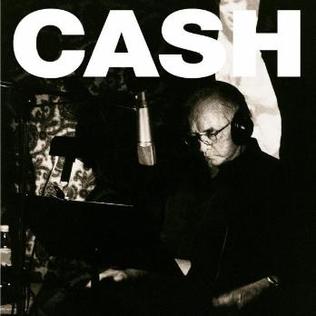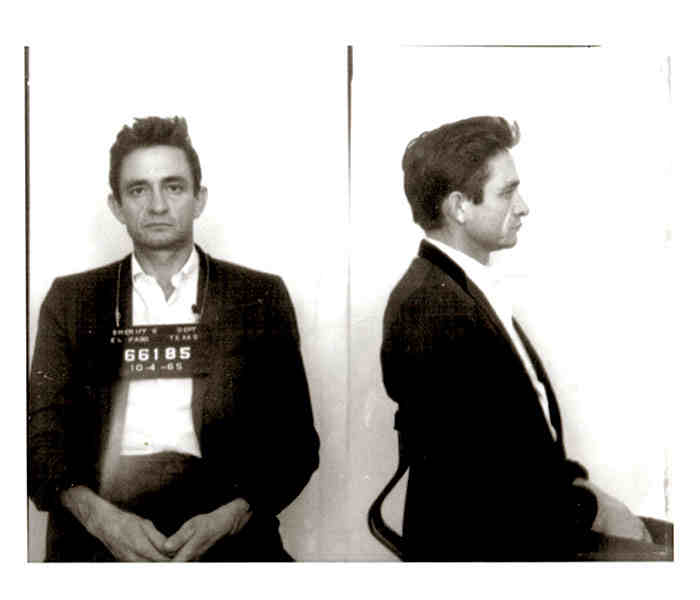
I’ve always associated Johnny Cash with my father.
Maybe it was the deep baritone voice. Maybe it was the imposing, larger-than-life persona. Whatever the case, I cried the day Johnny Cash died. And while those tears and that grief may have been in anticipation of my father’s impending death (he died a little more than 2 months later), they were real nonetheless.
Everyone knew it was a matter of time – the Johnny Cash in the “Hurt” video was a far cry from the Johnny Cash at Folsom Prison.
Or the original recording sessions at Sun Studios with Sam Phillips.
Or that hokey guest appearance as a charlatan preacher on “Little House on the Prairie.”
But although his death was immanent, it doesn’t mean that the news didn’t come as a shock. After hearing of his death, I listened to "American IV: The Man Comes Around" and heard anew the words of a man who knew he was about to die. "American IV" is full of songs about regret, despair, pain, sorrow… and faith. Faith of a man cheating death.
I heard this Johnny Cash once again a couple of days ago – the Johnny Cash who knew he was about to die. I picked up his latest [posthumously released] album "American V: A Hundred Highways" on Tuesday, the day it came out. Like he did on his last record, Cash sings of death. But whereas on “American IV,” he saw death as an executioner (like a condemned man awaiting the inevitable on death row), on "American V" he sees death as a gardener… one who tills the soil until the hope of the resurrection. The new album is filled with songs that are clearly hopeful of a better life beyond this one.
Much will be said of the propriety of "American V" – while the vocals were recorded in the months before Cash’s death, the backing tracks were laid in the two years since.
Save the controversy.
This record was released with the full support of the Cash family (John Carter, Rosanne, et al), and there are few collaborative partnerships like the one Johnny shared with Rick Rubin – Bernie Taupin/Elton John and Lennon/McCartney come to mind. One could argue that Rubin brought out the last creative breaths of a living legend like Johnny Cash in a way that no one else could have. Only Rubin could convince Cash to sing a Nine Inch Nails song, for crying out loud!

But back to death.
Death was something that Johnny Cash was known for. He was the Man in Black. The man who gave a voice to the common person. The man who sang for the oppressed. The man who spoke as the criminal. The man who knew his time on earth would soon come to an end. On "American V's" self-penned “Like the 309” he sings (in an appropriate semi-asthmatic, near-death guttural scrowl), “It should be a while before I see Dr. Death, so it would sure be nice if I could get my breath. Well I'm not the crying nor the whining kind, 'til I hear the whistle of the 309.”
And in “God's Gonna Cut You Down,” a confession only Johnny Cash could sing and not sound like a hell-fire and brimstone fundamentalist Bible-thumper (or like an ironic hipster as did Moby on “Run On” – yeah, that’s where you heard those lyrics before), he drones to a perfectly laid 2/4 stomp/clap backtrack, “Go tell that long-tongue liar; go and tell that midnight rider; tell the rambler, the gambler, the back biter: tell 'em that God's gonna cut 'em down.”
The reason is simple: he’s speaking about himself. About the man who God cut down… the man who God caused to stumble, but who wasn’t ashamed to tell that story, because it was the story of a gracious God who did just that… cut a man down and in the process show him his mercy.
I miss you Johnny Cash.
I miss you Dad.
 On the heels of my last post, I've put together my personal list of the top head-butts of all time. Here they are (please know that they were deliberated over, and much thought was put into their selection):
On the heels of my last post, I've put together my personal list of the top head-butts of all time. Here they are (please know that they were deliberated over, and much thought was put into their selection):



